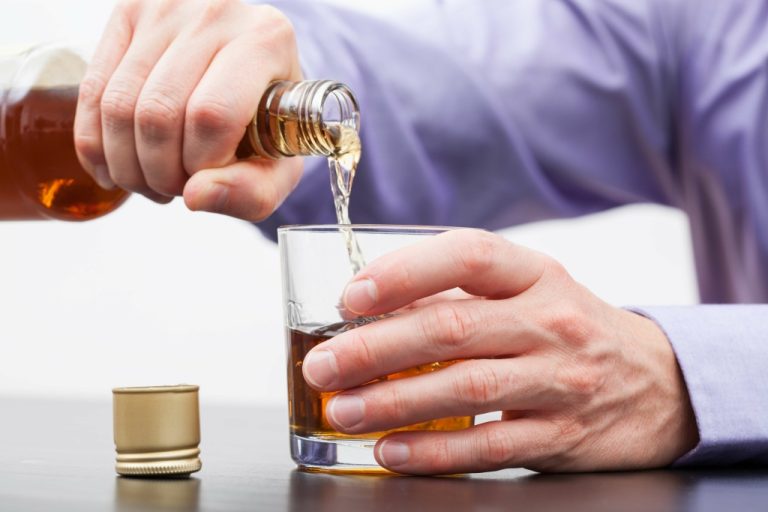Dance therapy combines the benefits of physical activity and artistic expression. Dancing can help release pent-up emotions, reduce stress, improve body image, and provide a fun, engaging way to cope with challenges. Physical activities like jogging, swimming, yoga, or even walking can have immense benefits in addiction recovery. Exercise releases endorphins, chemicals in your brain that act as natural painkillers and mood elevators. Regular physical activity can help manage stress, improve mood, boost self-confidence, and distract from cravings.
- Dealing with triggers is one of the most common shared experiences in recovery, and it may feel scary to some.
- Therapy tends to take time, so having patience with yourself and the process can be essential to long-term success.
- All types of therapy can help you manage drug cravings and treat any underlying mental health concerns that may have led you to abuse drugs in the first place.
- The important feature is that the interest avert boredom and provide rewards that outweigh the desire to return to substance use.
- Learning what one’s triggers are and acquiring an array of techniques for dealing with them should be essential components of any recovery program.
The well-researched science of behavior change establishes that addictive behavior change, like any behavior change, is a process that starts long before there’s any visible shift in activity. When faced with cravings, try using distraction techniques, engaging in physical activities, or reaching out to your support network for guidance and encouragement. If you are in recovery, please don’t lose hope in your ability to enjoy sobriety if you experience a relapse. Relapse happens – and believe it or not, it happens to many people who complete addiction treatment. This specialized attention can go a long way in helping people in recovery identify their triggers and learn how to prevent further addiction.
Researchers have studied the experiences of many people who have recovered from substance use and identified key features of the recovery process. One widely used model can be summed up in the acronym CHIME, identifying the key ingredients of recovery. Consistency and motivation can waver throughout the recovery journey. To stay on track, set realistic goals, celebrate small victories, and remind yourself of the reasons why you chose sobriety. Surrounding yourself with a supportive network can also provide the encouragement and accountability needed to maintain consistency. Create a toolbox of coping skills you can rely on when facing specific challenges.
Creating a Coping Skills Plan
The importance of coping skills in addiction recovery cannot be overstated. Substance abuse is often a misguided attempt to cope with life’s challenges, including stress, trauma, and mental health issues. Hence, rock recovery system when one stops using substances, one must find new, healthier ways to deal with these issues. When talking about addiction recovery, one might think of detoxification, therapy sessions, and support groups.
After treatment, relapse prevention programs are typically offered as ongoing support to help individuals maintain their recovery. This can include ongoing therapy, support groups, or participation in a 12-step program. It is essential to find physically https://soberhome.net/ and mentally engaging activities to help distract from addictive behaviors and keep individuals motivated in their recovery journey. Psychological addiction triggers can be avoided by taking proactive steps to address the underlying issues causing them.
Build A Support Network
Triggers can be difficult, but their impact can be fleeting with the right coping systems in place. One of the most rewarding aspects of recovery is rediscovering your passions and finding new things that bring you joy. Immersing yourself in something you enjoy, whether it’s kayaking, painting, crafting, golfing, or crafting something new in the kitchen, can help you cope with unwanted feelings and thoughts. It can be hard for those in recovery to realize they do deserve happiness and to enjoy the little things in life.
all therapy tools.
After months or years of chemical dependency, the brain must relearn how to live a sober lifestyle. Additionally, taking time out for yourself and engaging in activities such as exercise, meditation, or reading can help reduce any negative emotions and stress that could lead to substance use. The best way to avoid environmental addiction triggers is to become aware of your surroundings and the people around you. Being around certain people can lead to relapse, so limiting your contact with them is crucial. Triggers happen for people who are in recovery from a substance use disorder.
Recovery from Addiction
For many individuals, recognizing and preventing relapse is one of the most challenging aspects of recovery. Unless you have experienced them personally, you cannot imagine how difficult it can be to navigate a trigger without giving in to temptation. They outline their triggers, treatment goals, and courses of action. Mindfulness and meditation are powerful tools for managing stress and promoting emotional well-being. These practices involve focusing on the present moment, cultivating self-awareness, and accepting one’s thoughts and feelings without judgment.
Mindfulness means observing your thoughts, feelings, and surroundings without judgment. It can help you accept difficult emotions instead of trying to numb them with drug abuse. Some of the most common types of therapy for addiction include cognitive behavioral therapy (CBT), dialectical behavior therapy (DBT), and acceptance and commitment therapy (ACT). Don’t face these challenges alone—join our community at The Retreat today! Take that first step toward overcoming your triggers by reaching out to us; we’re here to support you every step of the way on your path toward lasting recovery.
Burying your feelings or coping in a negative manner can increase your risk of relapse, while positive coping techniques can help you overcome any obstacles you may face. Our team at Catalina is waiting for your call so we can help you start your recovery journey. Lasting recovery is more than just getting through the detox process. It’s also important to develop healthy coping mechanisms like the ones above so that no matter what your everyday life throws at you, you’re ready to handle it. Many individuals completing treatment programs continue to have therapy sessions after detox and may attend group therapy sessions as well. If you are in recovery and feeling challenged by triggers, know that you are not alone.



